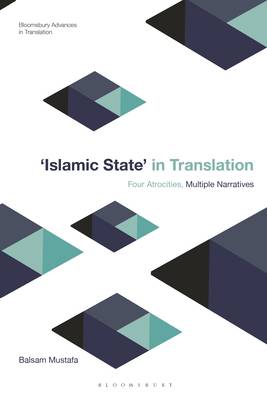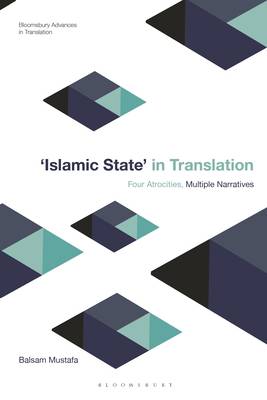
- Afhalen na 1 uur in een winkel met voorraad
- Gratis thuislevering in België vanaf € 30
- Ruim aanbod met 7 miljoen producten
- Afhalen na 1 uur in een winkel met voorraad
- Gratis thuislevering in België vanaf € 30
- Ruim aanbod met 7 miljoen producten
Omschrijving
Offering an in-depth, interdisciplinary analysis of Arabic and English language narratives of the Islamic State terrorist group, this book investigates how these narratives changed across national and media boundaries. Utilizing insights and methodologies from translation studies, communication studies and sociology, Islamic State in Translation explores how multimodal narratives of IS and survivors were fragmented, circulated and translated in the context of the terrorist action carried out by Islamic State against the people and culture of Iraq, as well as against other victims around the world.
Closely examining four atrocities, the Speicher massacre, the enslavement of Ezidi women, execution videos and videos of the destruction of Iraqi cultural heritage, Balsam Mustafa explores how the Arabic and English-language narratives of these events were translated, developed, and fragmented. In doing so, she advances a socio-narrative theory and reconsiders translation in the new media environment, within a broader socio-political field of inquiry.
Specificaties
Betrokkenen
- Auteur(s):
- Uitgeverij:
Inhoud
- Aantal bladzijden:
- 224
- Taal:
- Engels
- Reeks:
Eigenschappen
- Productcode (EAN):
- 9781350151987
- Verschijningsdatum:
- 25/08/2022
- Uitvoering:
- Hardcover
- Formaat:
- Genaaid
- Afmetingen:
- 156 mm x 234 mm
- Gewicht:
- 494 g

Alleen bij Standaard Boekhandel
Beoordelingen
We publiceren alleen reviews die voldoen aan de voorwaarden voor reviews. Bekijk onze voorwaarden voor reviews.







